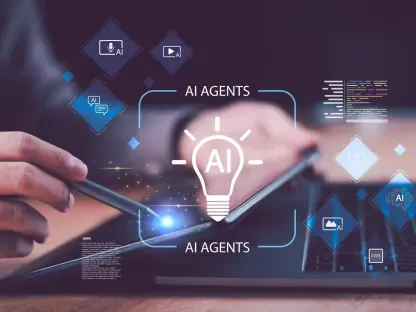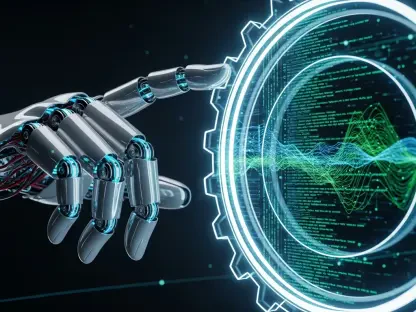I’m thrilled to sit down with Anand Naidu, our resident development expert, whose deep expertise in both frontend and backend technologies, as well as his mastery of various coding languages, offers invaluable insights into the evolving landscape of software engineering. Today, we’re diving into the transformative world of agent-driven development, exploring how it redefines workflows, reshapes the software development life cycle, and balances automation with human creativity. We’ll also touch on the cultural shifts required for enterprises to adopt this approach and how it’s changing the very role of developers.
How would you describe agent-driven development to someone new to the concept, and what makes it stand out from traditional coding practices?
Agent-driven development is essentially a partnership between developers and AI-powered agents that handle specific tasks in the software creation process. Unlike traditional coding, where a developer might write every line of code themselves in an IDE, here you’re delegating tasks to an agent much like you would to a teammate. You define the task, the agent executes it—pulling in context and using tools—and then you review the output. What stands out is the shift in focus: it’s not just about writing code anymore, but about guiding and refining the work of these agents to ensure quality and efficiency.
In what ways does this approach change the day-to-day workflow for developers compared to older methods?
The workflow becomes more collaborative and iterative. In the past, developers spent hours on repetitive tasks like debugging or writing boilerplate code. Now, with agent-driven development, those tasks can be offloaded to AI agents, allowing developers to focus on higher-level planning and creative problem-solving. You’re spending more time defining tasks clearly upfront and reviewing outputs rather than getting bogged down in the minutiae. It’s a shift from being a solo coder to more of a conductor of a process, ensuring everything aligns with the project’s goals.
Which stages of the software development life cycle do you see being most transformed by AI agents?
Honestly, every stage of the SDLC—software development life cycle—gets a boost, but I’d say planning, coding, reviewing, testing, and maintenance see the most impact. Agents can analyze requirements and help plan code changes, generate initial code drafts, assist in peer reviews by flagging issues, automate testing scripts, and even suggest maintenance updates based on performance data. The transformation lies in how these agents handle the grunt work, freeing up human developers to focus on strategy and innovation at each step.
Can you share a specific example of how an AI agent might streamline one of these stages, like testing or reviewing code?
Absolutely, let’s take code review as an example. Normally, developers spend significant time manually checking each other’s code for bugs, style inconsistencies, or potential security flaws. An AI agent can step in and run an initial review, highlighting problematic areas, suggesting fixes, and even ensuring the code adheres to the team’s style guide. A developer then just needs to validate the agent’s findings and focus on deeper logic or design concerns. This cuts down review time dramatically while still maintaining quality, since the human touch isn’t replaced—it’s just more targeted.
Why is human oversight still so critical in a process that relies heavily on automation?
Human oversight is the linchpin that keeps agent-driven development grounded. AI agents are fantastic at handling repetitive or data-driven tasks, but they lack the nuanced understanding of context, user needs, or creative vision that humans bring. For instance, an agent might generate functional code, but a developer needs to ensure it aligns with the broader system architecture or solves the problem in an innovative way. Oversight ensures that automation doesn’t lead to generic or misaligned solutions—it’s about guiding the tech to serve the human intent behind the project.
What does ‘agent readiness’ mean for enterprises, and why should they prioritize it?
Agent readiness is about preparing an organization—both its people and systems—to effectively integrate AI agents into their development processes. It means setting up clear rules, standards, and guardrails so agents operate within defined boundaries and produce reliable, secure outputs. For enterprises, this is crucial because without readiness, you risk agents making changes that don’t align with company policies or security protocols. Prioritizing this ensures smoother adoption, minimizes errors, and builds trust in the technology across teams.
How are the roles of software engineers evolving with the rise of agent-driven development?
The role is shifting from hands-on coding to more strategic and creative responsibilities. Engineers are now less focused on repetitive tasks like writing basic functions or documentation, which agents can handle, and more on system design, complex problem-solving, and defining the direction of projects. It’s becoming a role where you’re thinking about the big picture—how components interact, how to innovate within constraints—while agents take care of the groundwork. For many, this makes the job more fulfilling, though it does require adapting to a new mindset.
What do you see as the biggest advantage of this approach for large organizations looking to scale their tech operations?
The biggest advantage is the sheer efficiency it brings. By offloading routine tasks to agents, developers can focus on high-value work, which accelerates project timelines and reduces burnout. For large organizations, this means scaling operations without proportionally increasing headcount—teams can handle more projects with the same resources. Plus, with agents ensuring consistency in things like code quality or testing, there’s a reduction in errors, which saves time and cost in the long run. It’s a game-changer for staying competitive in fast-paced industries.
What is your forecast for the future of agent-driven development in enterprise technology over the next few years?
I believe we’re just at the beginning of this revolution. Over the next few years, I expect agent-driven development to become a standard in enterprise tech, with agents becoming even more specialized and integrated into every facet of the SDLC. We’ll likely see advancements in how agents understand context and handle more complex tasks, reducing the need for human intervention in certain areas. At the same time, I think there’ll be a stronger emphasis on governance and ethics to ensure these tools are used responsibly. Ultimately, it’s going to redefine how we think about innovation, making development faster, smarter, and more collaborative.









